November is the cold end of autumn in the northern hemisphere; the start of winter and not a month traditionally associated with travel. The days get dark earlier in November, and the seasonal chill means that certain mountains will require specialist winter equipment. The world is a big place, though – and even a quick bit of research will show you that while November might rule out certain locations for trekking, in other places, it means fewer crowds, cheaper accomodation, vibrant autumn colours or even sunshine.
As the American naturalist Henry David Thoreau scribbled: “the thinnest yellow light of November is more warming and exhilarating than any wine they tell of.”
Hike amongst eternal spring, visit archipelagos where you can bask in summer heat – or climb snowy mountains fitted with crampons.
Life moves at a slower pace in November. Tourists are less common – so locals are a bit more relaxed. Of course, in the southern hemisphere, the scene is different. November in New Zealand, for example, marks the end of spring and the beginning of summer. Temperatures are heating up, and the hiking season is well underway. This is a great time for those who like their adventures social.
Active adventure holidays | Much Better Adventures
Join like-minded people on an active, small group, tour.
What this ultimately means – obviously – is that the best place to go in November is subjective, and entirely dependent on what sort of conditions and activities you’re looking for. What we can say for sure, though, is that you shouldn’t write off the month of November. While everyone else is sulking at the days getting shorter, you can be hiking amongst eternal spring, visiting archipelagos where you can bask in summer heat – or climb snowy mountains fitted with crampons.
Here’s our guide to the best travel destinations in November – a month for those with wanderlust, who like to travel smart.
1. Madeira, Portugal
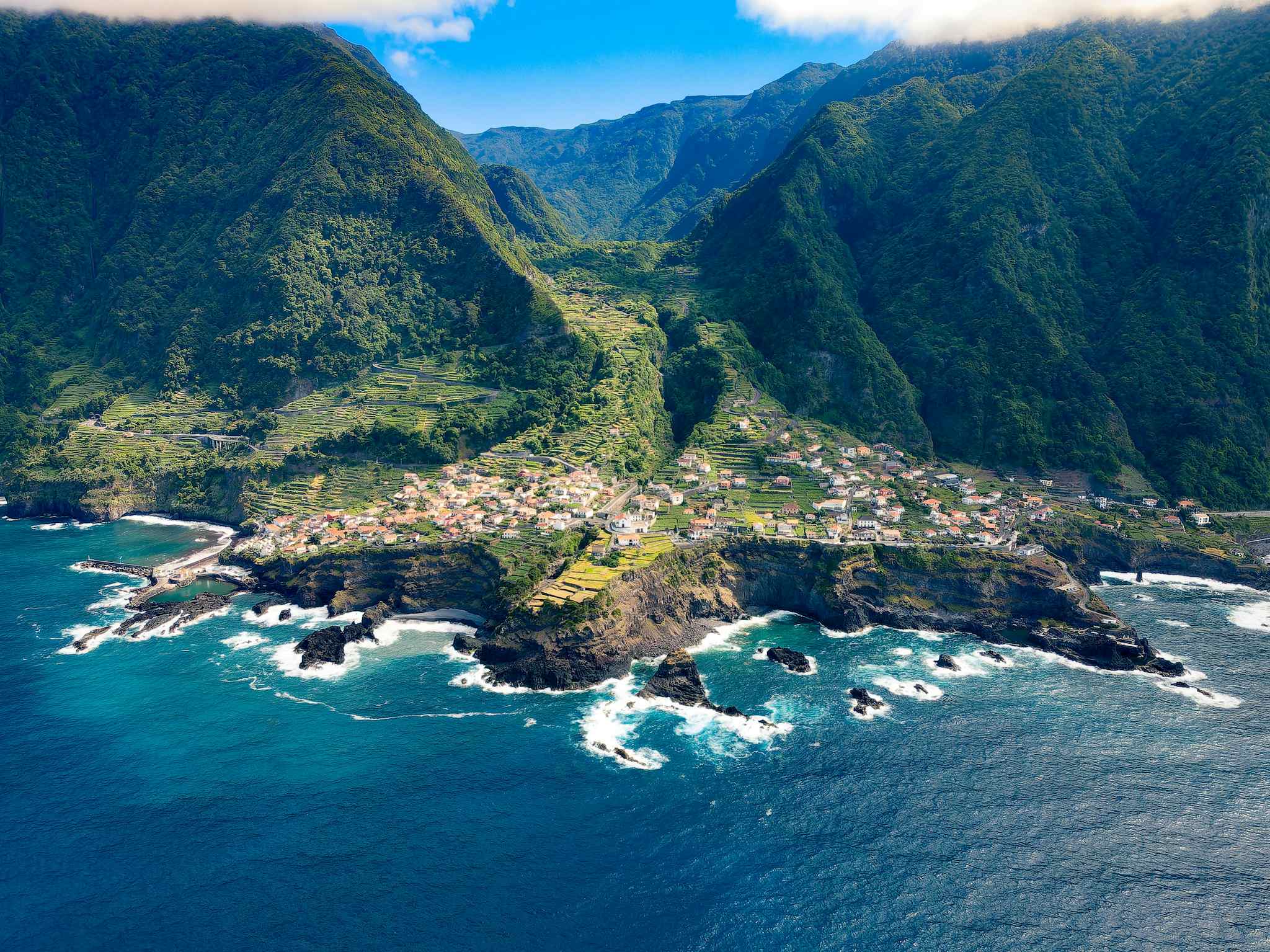
- Season: Autumn/winter
- Temperature: 14°C high, 9ºC low
- Time zone: GMT+1
- Currency: Euro
- Best for: Escaping to eternal spring
Madeira is a Portuguese island which sits 607 miles (978km) off the coast of Lisbon in the Atlantic Ocean. You may have heard it referred to as the “Hawaii of Europe” (albeit, usually in clickbait headlines) but the hype is real. Madeira is covered in high mountains ideal for hiking, surrounded by dreamy surf waves and it’s made a name for itself in the world of mountain biking, too.
Most famously, it’s known as the “land of eternal spring”, as it doesn’t get particularly cold at any time of year. Conditions remain cool, often warm, and ideal for adventure year-round. This may make a little more sense when you realise that the island sits on the African plate, and is actually closer to Morocco than it is to Portugal. It’s an obvious spot for a November adventure.
How to get there? You don’t need to be a football fan to get this reference. Fly into the Cristiano Ronaldo Madeira International Airport, in the city of Santa Cruz.
Coast to Coast Traverse of Madeira | Much Better Adventures
Join an expert local guide on a hike across the peaks, cliffs and forests of this Atlantic island known as the ‘Hawaii of Europe’, including Pico Ruivo.

2. The Albanian Riviera, Albania
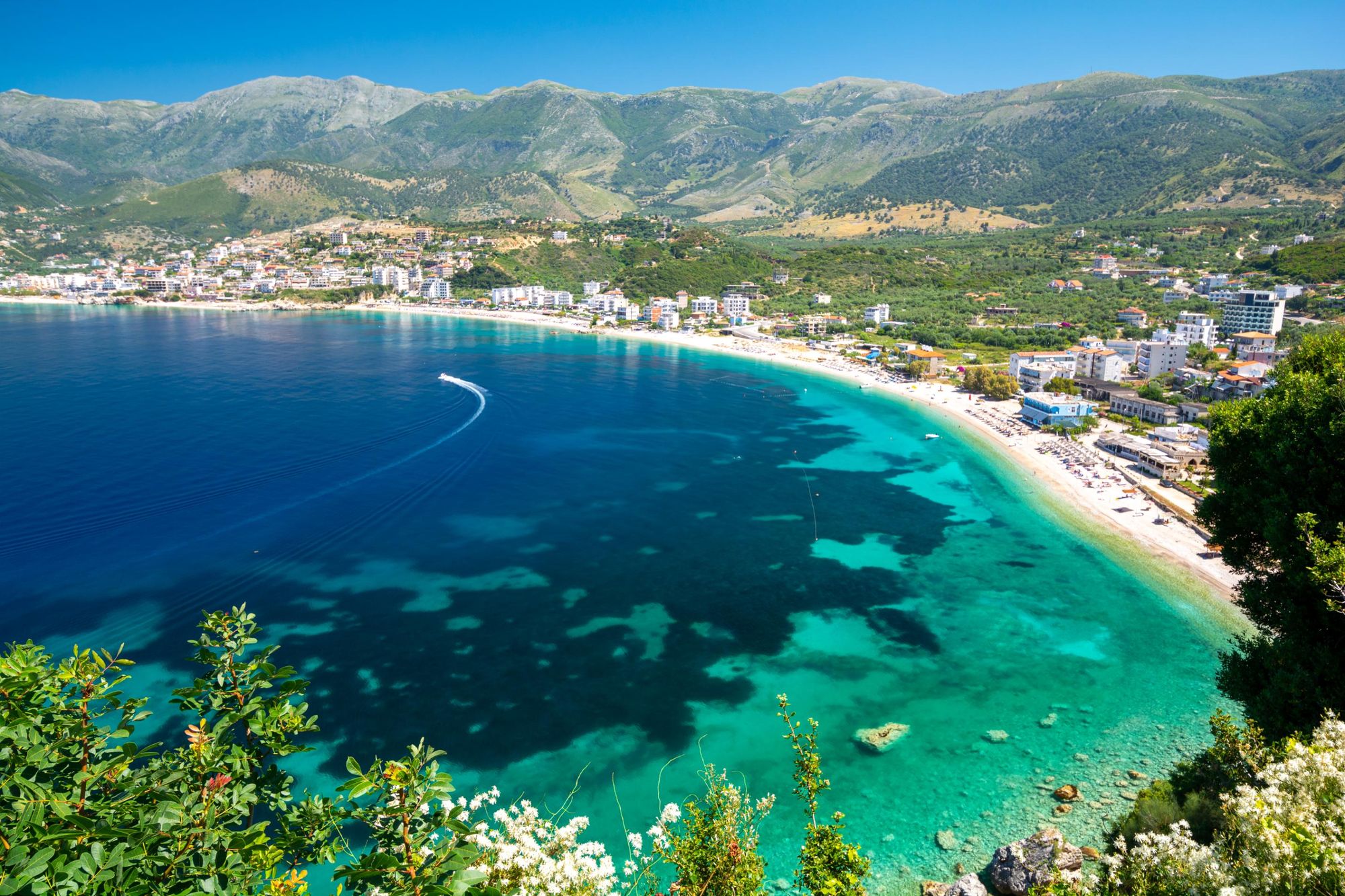
- Season: Autumn/winter
- Temperature: 17°C high, 8ºC low (for Dhërmi)
- Time zone: GMT+2
- Currency: Albanian Lek
- Best for: Coastal hiking
The Albanian coastline has become a popular getaway in recent years for people looking to soak in the sun on white sand beaches, where warm water laps up on the shores, without a mega price tag. It certainly ticks all those boxes, too. Looking out at the Greek island of Corfu, with beaches backdropped by mountains, Albania is an affordable, astonishingly beautiful place to visit.
Rather than going in the high season, when the beaches and towns are crowded, why not visit in the off-season, when the locals are more relaxed, and the well-marked hiking trails are empty? Even in November, the weather here is still good for hiking, the rivers for rafting – and the coastline is likely to be even more affordable than in summer; plus, you won’t see so many crowds.
How to get there? The closest international airport to the Albanian Riviera is the capital of Tirana, which is 75 miles (121km) away. The Riviera is a four hour bus ride from here.
Canyons to Coast Adventure in Albania | Much Better Adventures
Join expert guides to kayak, raft and hike through Albania’s epic rivers, mountains and canyons to reach the stunning beaches of the Albanian Riviera.
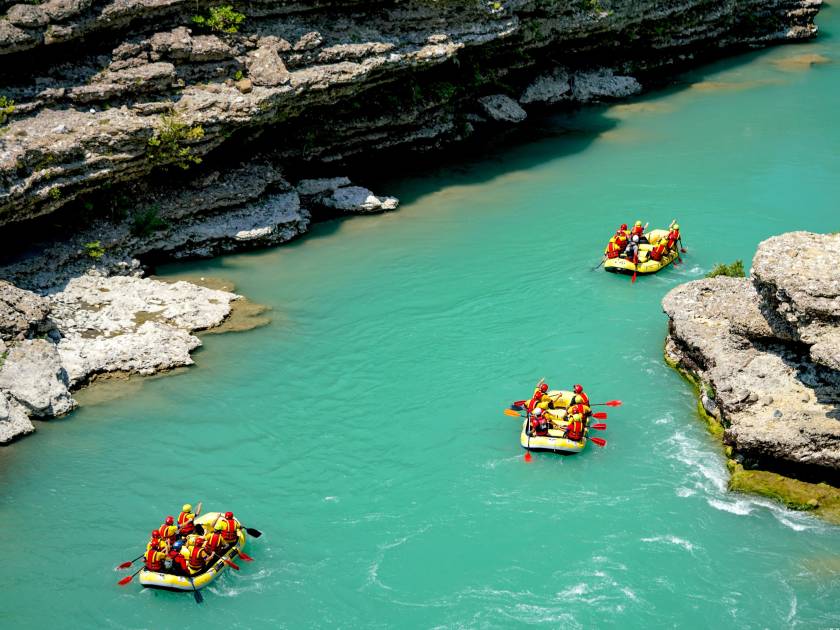
3. Santiago and Fogo Island, Cape Verde
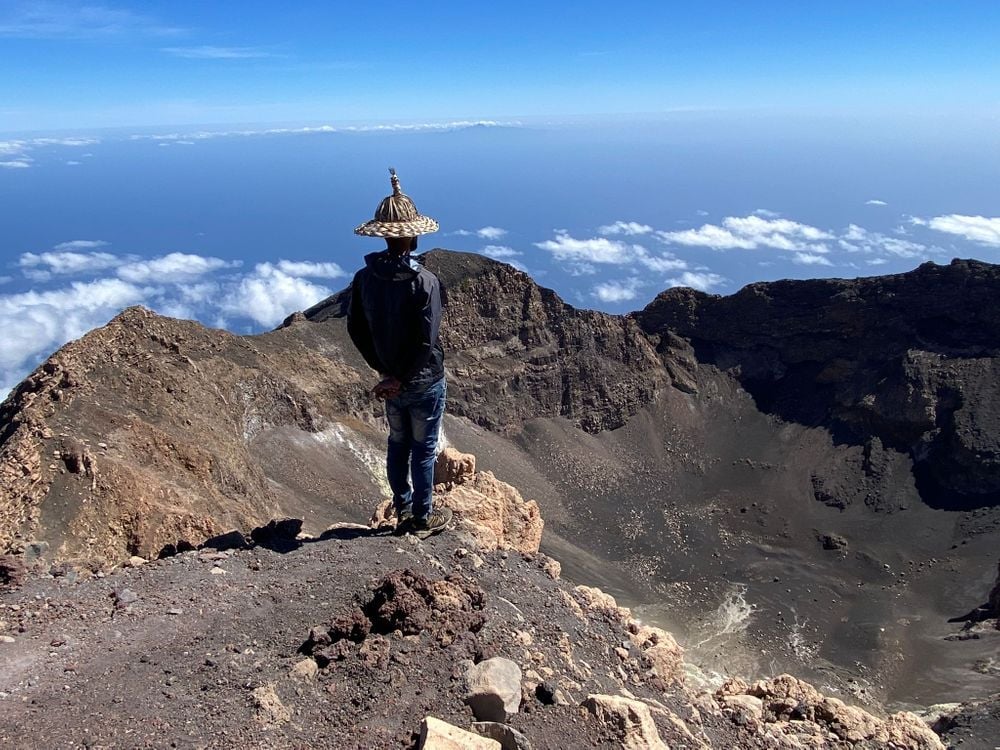
- Season: Autumn/winter
- Temperature: 29°C high, 23ºC low
- Time zone: GMT-1
- Currency: Cape Verdean Escudo
- Best for: November beach weather
Cape Verde is an island of music; of African-Portuguese culture and remarkable nature. Hit the ash-covered slopes and hike to the top of Pico do Fogo (2,829m), which is an active stratovolcano and the highest point in all of Cape Verde. Then take to the Calabaceira Valley and Serra Malagueta Natural Park and wild swim in crystal clear pools, sculpted by lava.
The trekking in Cape Verde is very much good year-round, but in November you’ll find temperatures more palatable to most – the average high is 28°C. Leave the sideways rain at home and walk up mountains, with blue skies above.
How to get there? Amílcar Cabral International Airport is the main airport of Cape Verde. It’s on Sal Island. There are also international airports on Santiago, São Vicente and Boavista.
Adventure Hiking in Cape Verde | Much Better Adventures
Join a small group of adventurous souls to hit the trails of Santiago and Fogo islands and soak up the archipelago’s inimitable African-Portuguese culture.
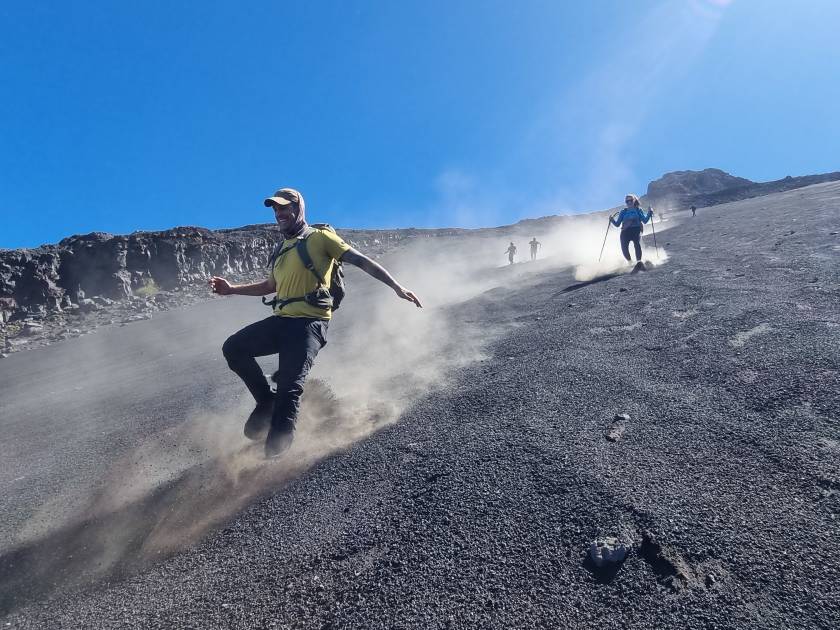
4. Picos de Europa, Spain
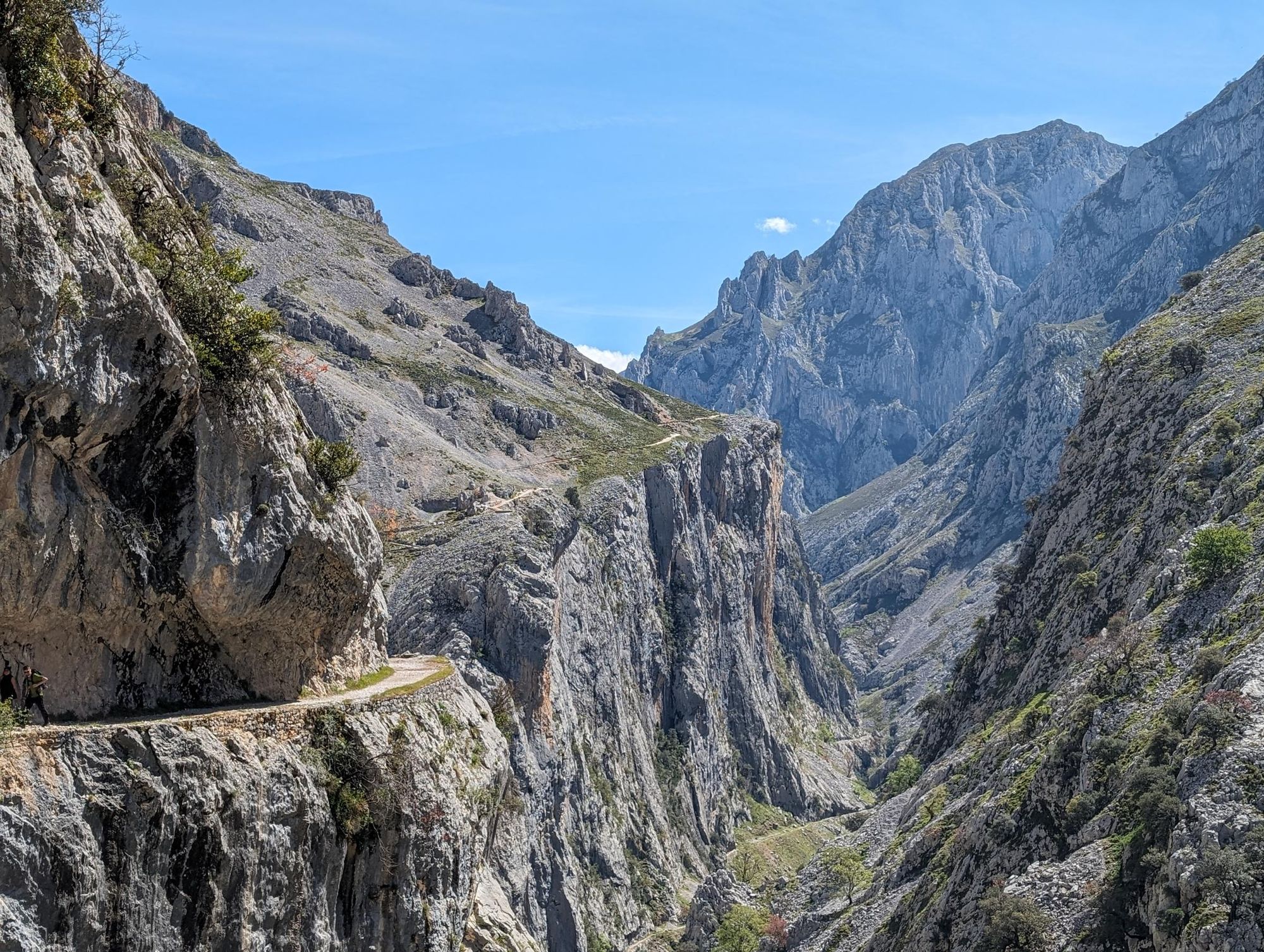
- Season: Autumn/winter
- Temperature: 18°C high, 7ºC low
- Time zone: GMT+1
- Currency: Euro
- Best for: A rocky, rugged, autumn experience
This small but mighty mountain range in northern Spain has so much to offer; from serious mountaineering and rock climbing to leisurely – but remarkably-scenic hikes like that along the Ruta del Cares gorge. Then there’s the canoeing and kayaking to be done in the area, and the gorge walking through natural cracks in the rock faces, while families of (benevolent) vultures circle above.
The area is becoming increasingly popular with adventure enthusiasts for obvious reasons. Go in summer and while beautiful, it may be busy. Visit in November and you’ll catch the tail end of the autumn colours, dotted around the landscape, and you’ll find tourists are few and far between.
How to get there? The Picos de Europa are served by various airports. Santander and Asturias Airport are around a 90-minute drive from the Picos de Europa. Bilbao Airport is an hour further.
Hut-to-Hut Trekking Adventure in Spain’s Picos de Europa | Much Better Adventures
Tackle an epic route through Northern Spain’s hidden gem of a mountain range on a small group holiday with expert local guides in Asturias and Cantabria.
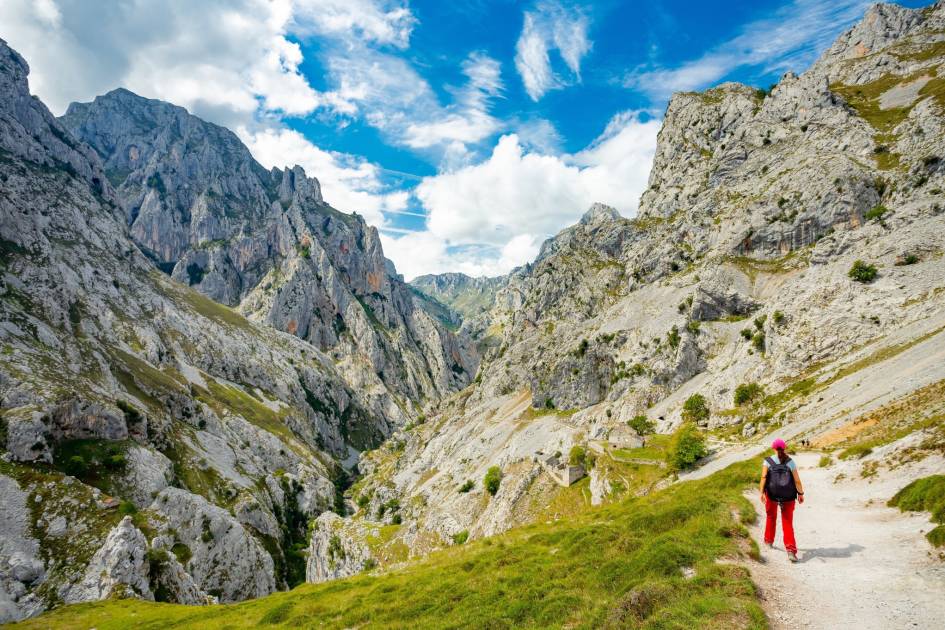
5. Viñales, Cuba
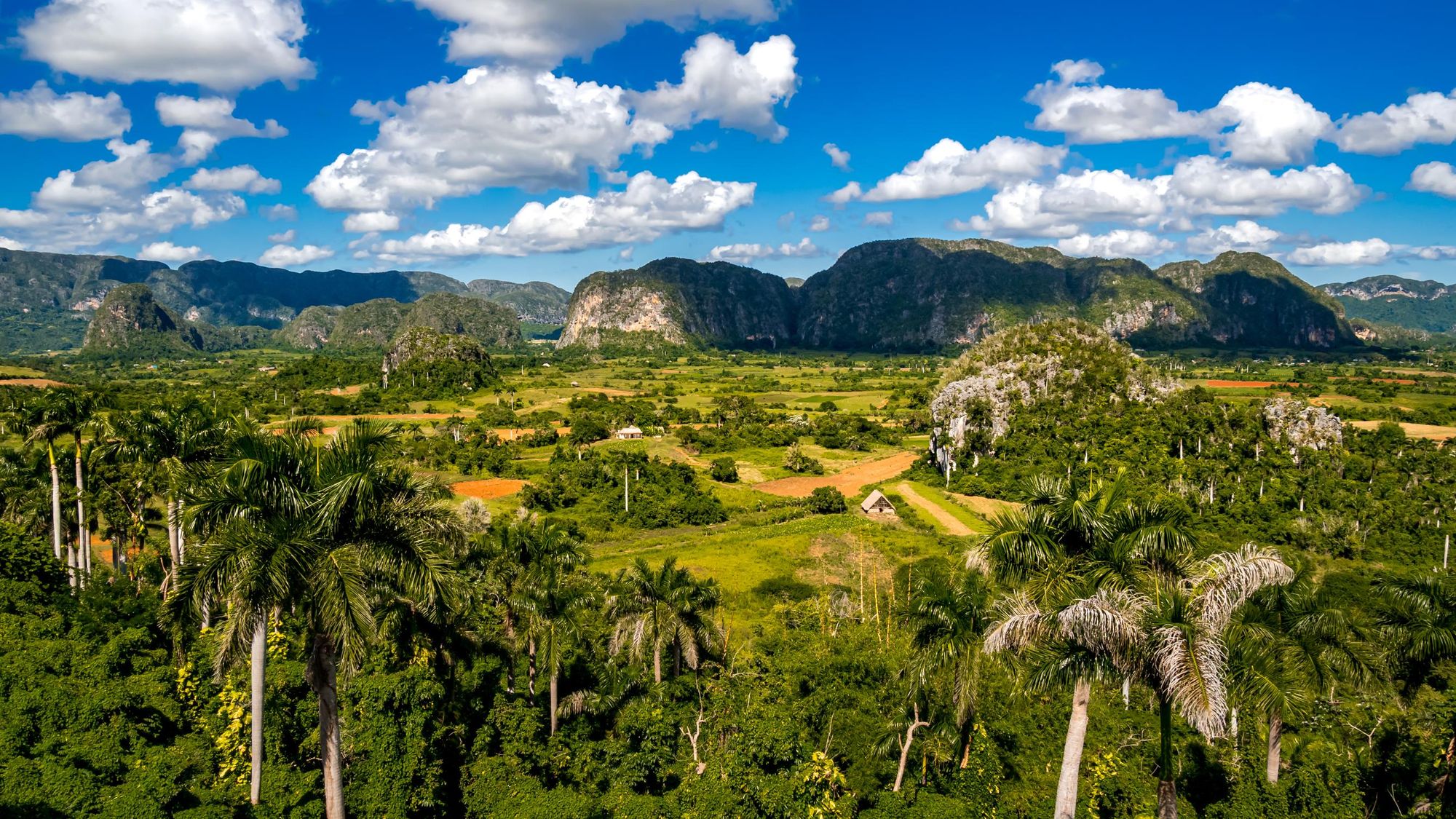
- Season: Dry season
- Temperature: 29°C high, 19ºC low
- Time zone: GMT-4
- Currency: Cuban Peso
- Best for: A multi-activity adventure in the sun
The colourful cars and mojitos of Havana are world famous, but get out along the western coast of the country and you’ll find Jurassic landscapes with far-reaching views of glimmering ocean.
Head to the Viñales Valley and you’ll find the Mural de la Prehistoria, a colourful mural painted on a stone hillside, and explore the countryside and mountains beyond. This is a World Heritage Site, famed for its farming practices but remarkable for its beauty. There are tobacco farms here where you can learn about cigar production and there’s a small town to explore at your own pace. Visit in November and the temperature is typically warm, without rising to baking heat.
How to get there? There are a full 10 international airports in Cuba. The main two are the José Martí International Airport in Havana and the second largest airport in Cuba, Varadero Airport.
Cycle the Backroads of Cuba | Much Better Adventures
Join a cycling adventure across Cuba with like-minded folk. Discover old fishing villages, white sand beaches, Che Guevara’s hideouts and sip mojitos in Havana.
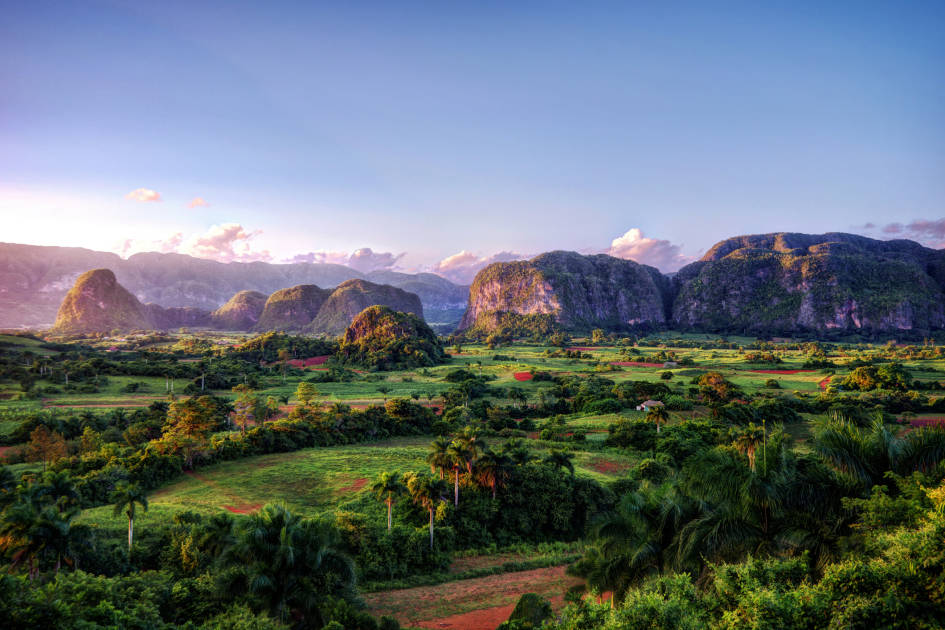
6. Yasuní National Park, Ecuador

- Season: End of rainy season
- Temperature: 31°C high, 20.5ºC low
- Time zone: GMT-5
- Currency: US Dollar
- Best for: Wildlife watching
The facts are clear on this one. Yasuni – which sits within Amazonian Ecuador – is home to 1000s of species of plants. It’s also a place where over 650 species of tree can be found within a single hectare of forest. You’ll find 130 globally-threatened species of animals here, including giant armadillos and white-bellied spider monkeys, and remarkably, there are over 1400 distinct species of animal in Yasuni National Park alone. Welcome to one of the most biodiverse places on planet Earth. November is a particularly good month to visit for wildlife watching, as it is technically still rainy season, which means you’ll get more wildlife out and about, but the rain is seriously easing up, so you shouldn’t have to hike in it all day.
How to get there? Start your adventure by reaching Quito, the capital of Ecuador, where there is the Mariscal Sucre International Airport.
Amazon Rainforest Adventure in Ecuador | Much Better Adventures
This epic Amazon adventure trip sees you hike through primary rainforest & camp on the river’s edge in the Yasuni Biosphere Reserve, which teems with wildlife.

7. The Sierra Nevada de Santa Marta mountains, Colombia
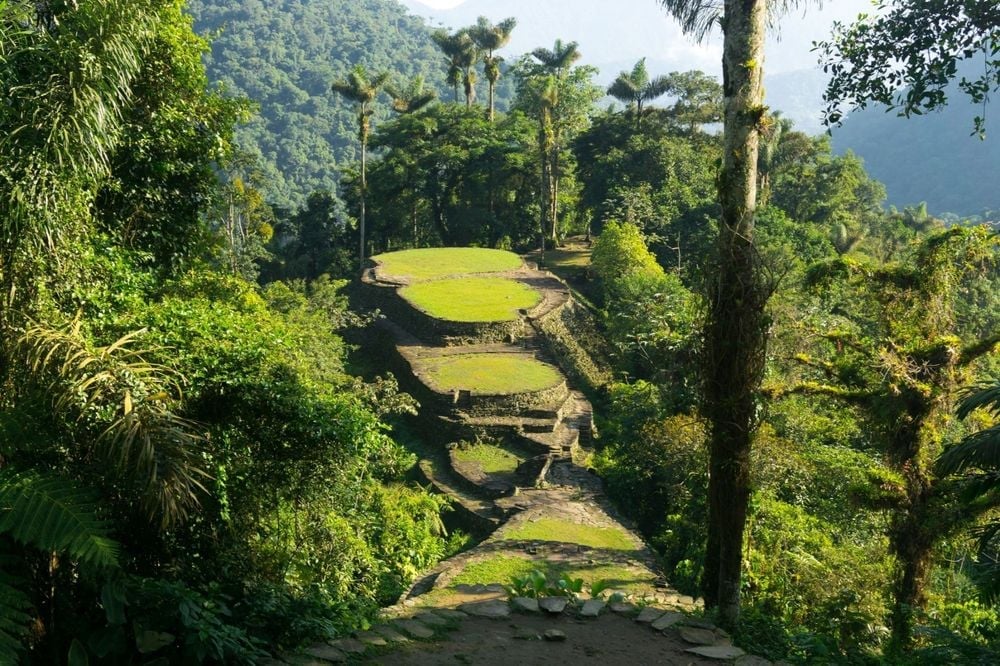
- Season: End of rainy season
- Temperature: 32°C high, 24ºC low (for Santa Marta)
- Time zone: GMT-5
- Currency: Colombian Peso
- Best for: A full-on jungle experience
Hiking into the Sierra Nevada de Santa Marta jungle – the highest coastal mountains in the world – is an immersion in greenery. One moment you’ll be hiking along a narrow, winding trail deep in the flora, the next you’ll be wading through a river, and after that, you’ll find yourself on an open plane looking out over a layering forest, which reaches as far as the eye can see.
The jungle is today still home to a range of indigenous tribes, who now guide tours to reach the Lost City, a sacred, ancient citadel hidden at the top of a long, winding staircase deep in the mountains. They use the income to uphold their traditions and to buy land. November is the tail end of the wet season here. You’ll probably see the odd downpour, but they tend to come thick, fast and then end relatively quickly. In return, you’ll have a more tranquil hiking experience.
How to get there? It’s likely your adventure will start at either the international airport in Medellin (Jose Maria Cordova International Airport) or El Dorado International Airport in Bogotá; though the closest airport to the jungle is the Simón Bolívar International Airport in Santa Marta.
Trek Colombia’s Mountains and Lost City | Much Better Adventures
Journey through dense jungle and high-altitude paramos, wade across waist-deep rivers and climb ancient volcanoes to discover the secrets of Colombia’s Lost City.
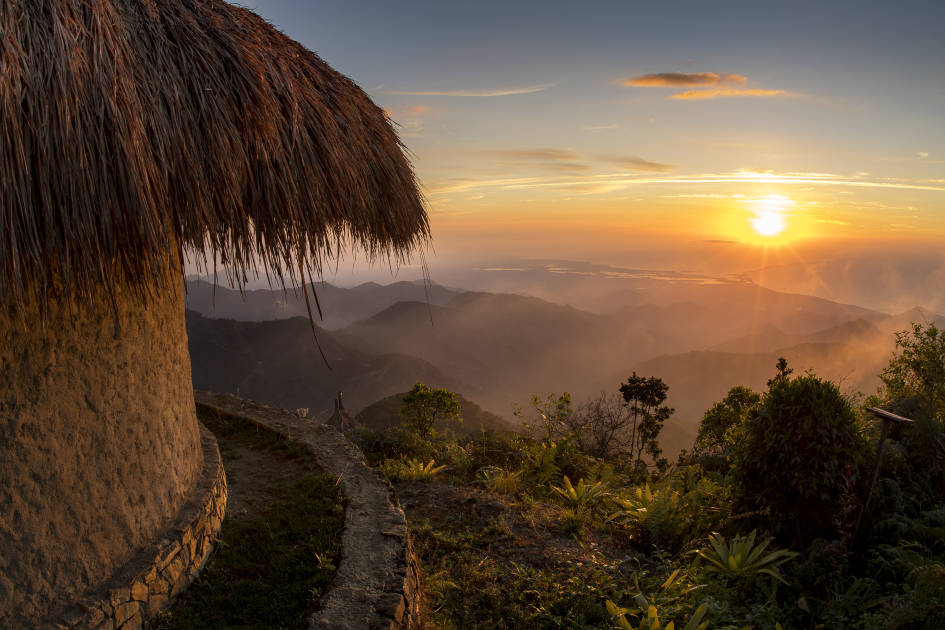
8. The Drakensberg Mountains, South Africa
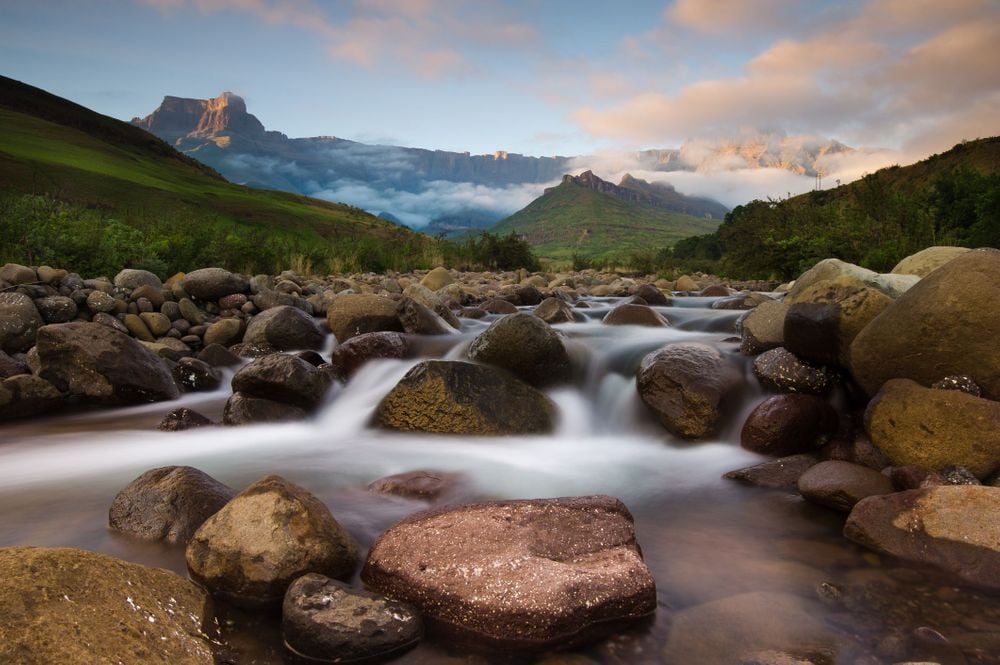
- Season: Spring/Summer
- Temperature: 25°C high, 12.4ºC low
- Time zone: GMT+2
- Currency: South African Rand
- Best for: Summer vibes and fantastic flora
The Drakensberg is a huge green wall which rises up to backdrop rolling hills and rivers. The range forms the natural border between South Africa and Lesotho, and in the higher reaches of the mountains, you’ll find challenging hiking trails which include chain ladders, leading to peaks.
November is summer in South Africa, and is possibly the best time for those who want to see as much of the flora as they can. It’s also the rainy season, so do be prepared for sudden storms – particularly as this area can be very exposed.
How to get there? The best way to reach the Drakensberg is to fly into King Shaka International Airport in Durban or the O.R. Tambo International Airport in Johannesburg.
Hike, Kayak and Wild Swim South Africa | Much Better Adventures
Join expert guides to hike, paddle and swim your way from the Drakensberg Mountains to the Wild Coast with a small group of like-minded adventurers.
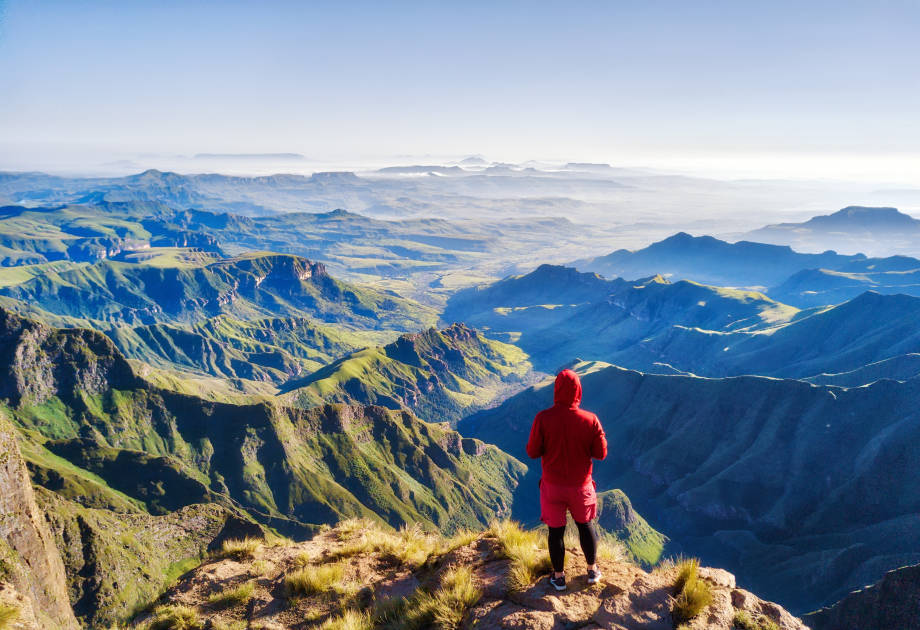
9. Volcanoes National Park, Rwanda
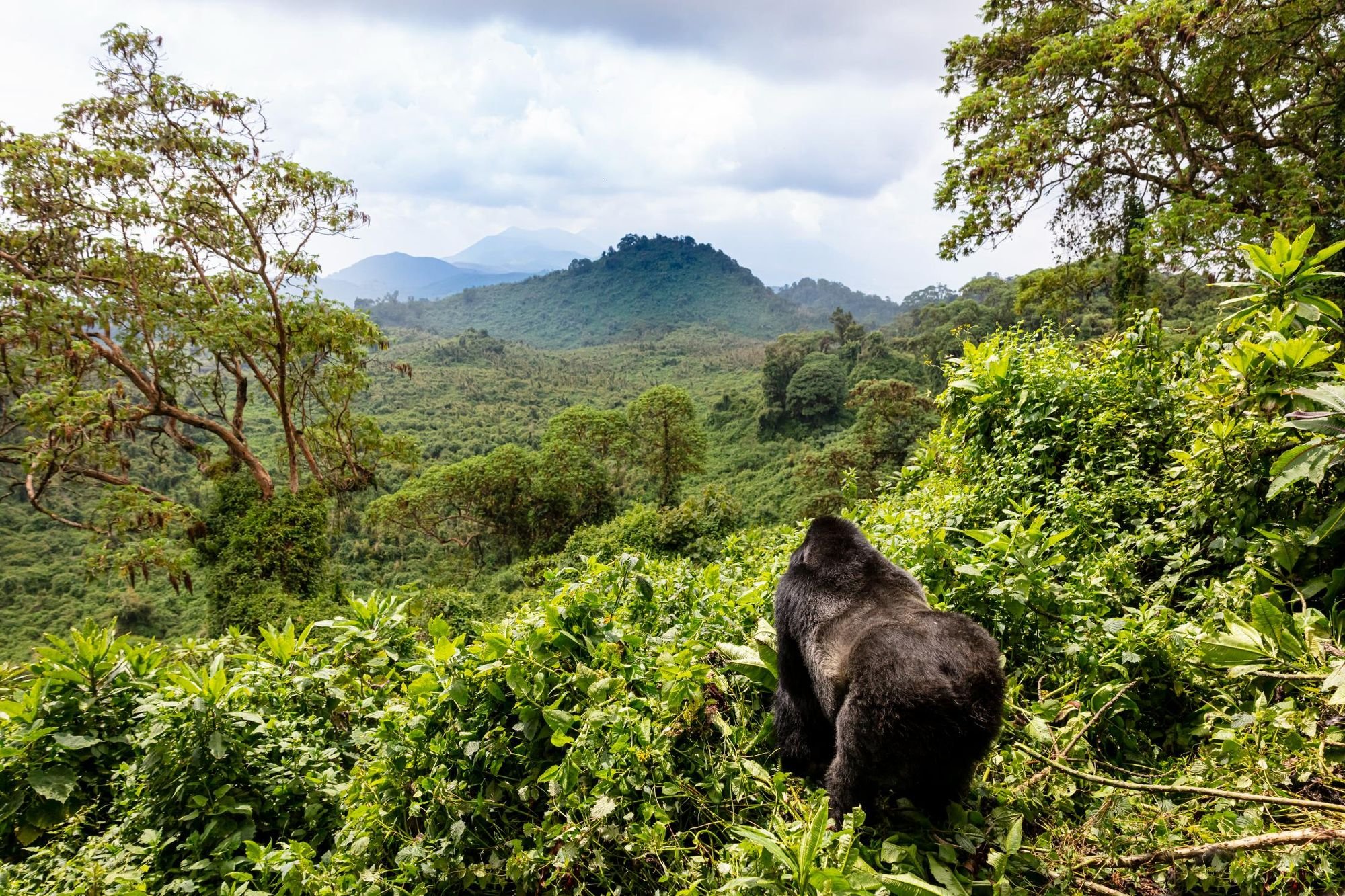
- Season: Rainy season
- Temperature: 26°C high, 16ºC low
- Time zone: GMT+2
- Currency: Rwandan Franc
- Best for: Seeing mountain gorillas and birds
Rwanda is a place of ancient rainforests, emerald lakes and mountain gorillas. Head to the Nyungwe National Park and you can take a canopy walk above treetops. Kayak on Lake Kivu, one of the Great Lakes of Africa, and camp under the stars. Cycle through the coffee fields and visit Volcanoes National Park – where you can take the famous hike to see mountain gorillas.
Now, it may seem slightly wild to suggest visiting during the rainy season, but if you don’t mind the odd shower (or downpour), then there are a lot of rewards to be had. The flora is more vibrant and pungent, and the wildlife more active during the rainy season. Notably, birdwatchers like to visit during this time, as the rights plants are in the right season to attract more birds.
More than 200 species of bird live here – most of which you won’t have heard of. Rwenzori turaco, anybody? It’s a small plump, multicoloured bird. Adorable.
How to get there? Your adventure is most likely to start at Kigali International Airport, in the capital of Rwanda.
The Ultimate Adventure Through Rwanda | Much Better Adventures
Join our action-packed small group adventure among ancient rainforests and emerald lakes in Africa’s wild heart, home to the iconic mountain gorillas.
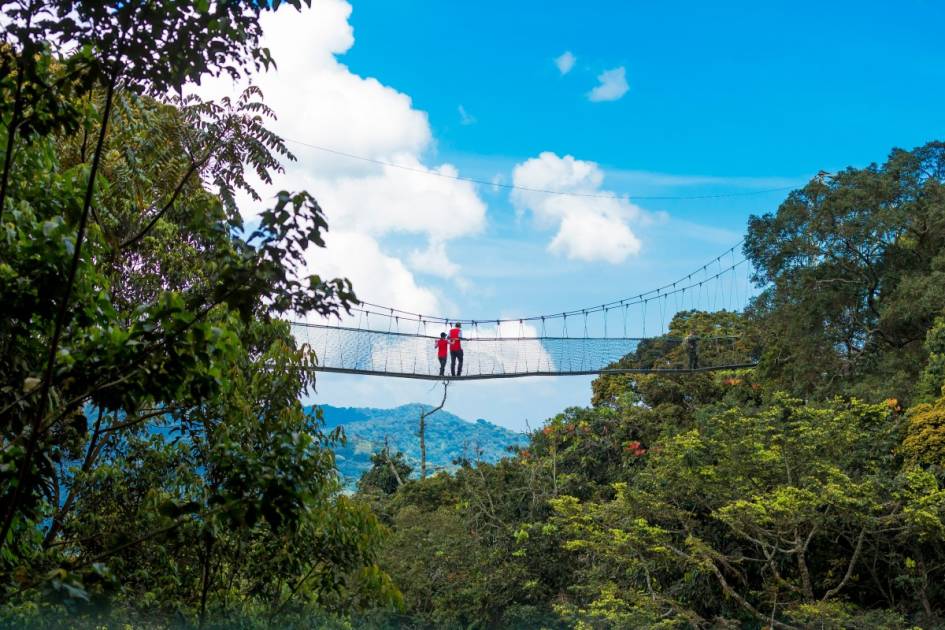
10. Mount Toubkal, Morocco
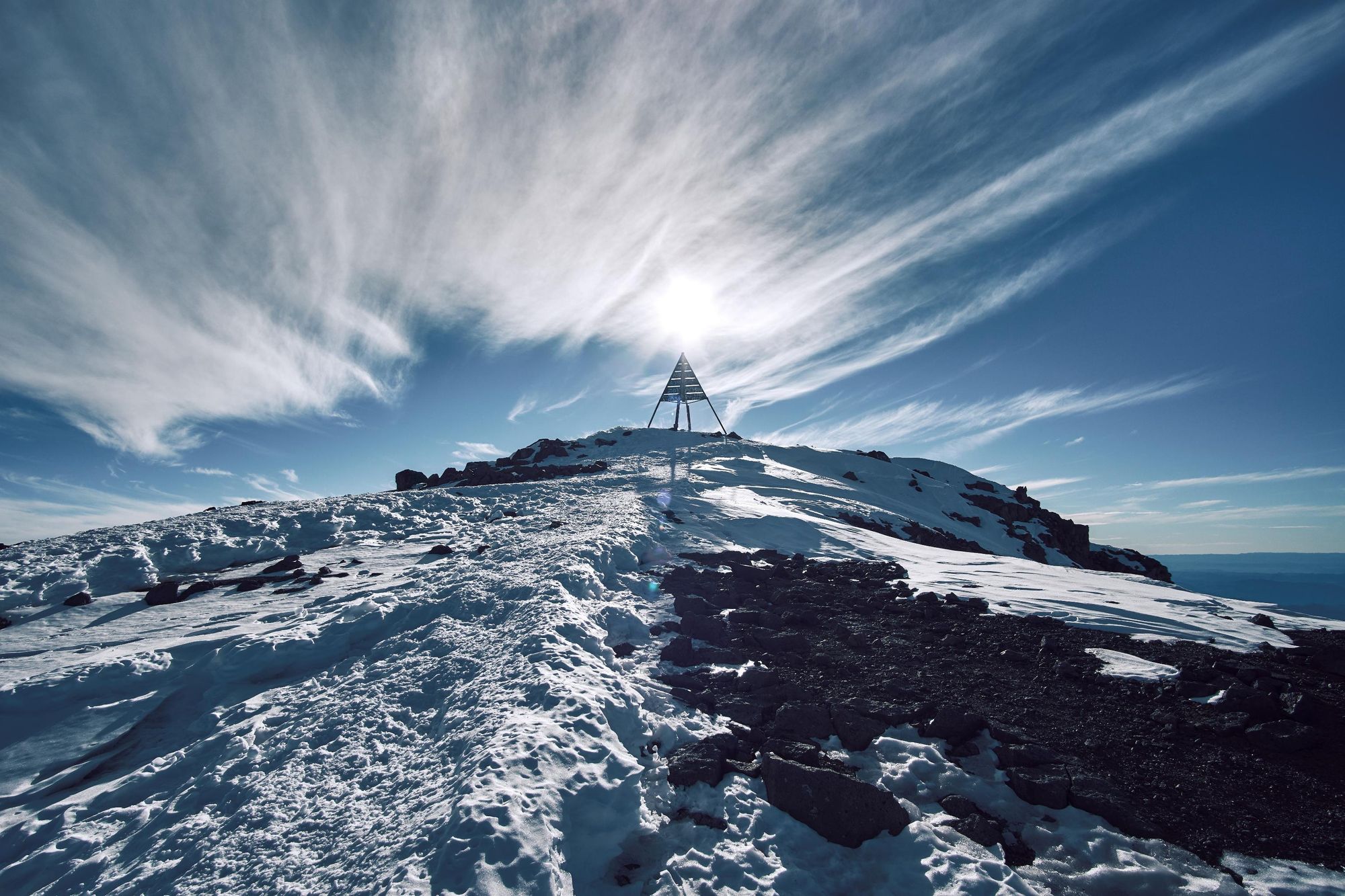
- Season: Autumn/winter
- Temperature: 25°C high, 10ºC low (for Imlil)
- Time zone: GMT+1
- Currency: Moroccan Dirham
- Best for: A winter mountain summit
If you’re looking to tackle your first serious mountain summit in winter, then consider the mighty Mount Toubkal – the tallest peak in Morocco and North Africa.
This hike is typically split over two days. The first takes you up to the Toubkal refuge. The second will then take you up to the summit of Mount Toubkal and back down to the base. Snow usually starts gathering on Toubkal around October or November, so while you may not find the mountain entirely coated in the white stuff in November, it’s likely you’ll get a taste of it. Depending on conditions, ice axes and crampons may be required on the summit hike.
How to get there? Most people visiting the Atlas Mountains first fly into Marrakech Airport.
Climb Mount Toubkal: The Winter Edition | Much Better Adventures
Don your crampons for a serious adventure and trek your way up the mighty Mount Toubkal in the height of winter. Expert mountain guides will lead the way.
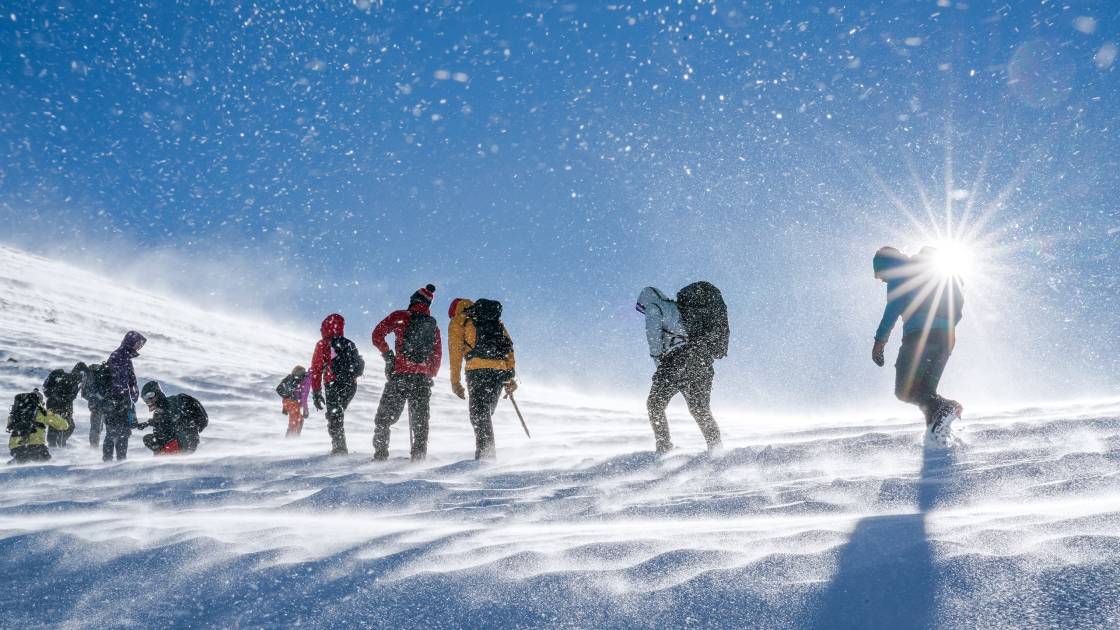
11. Okavango Delta, Botswana
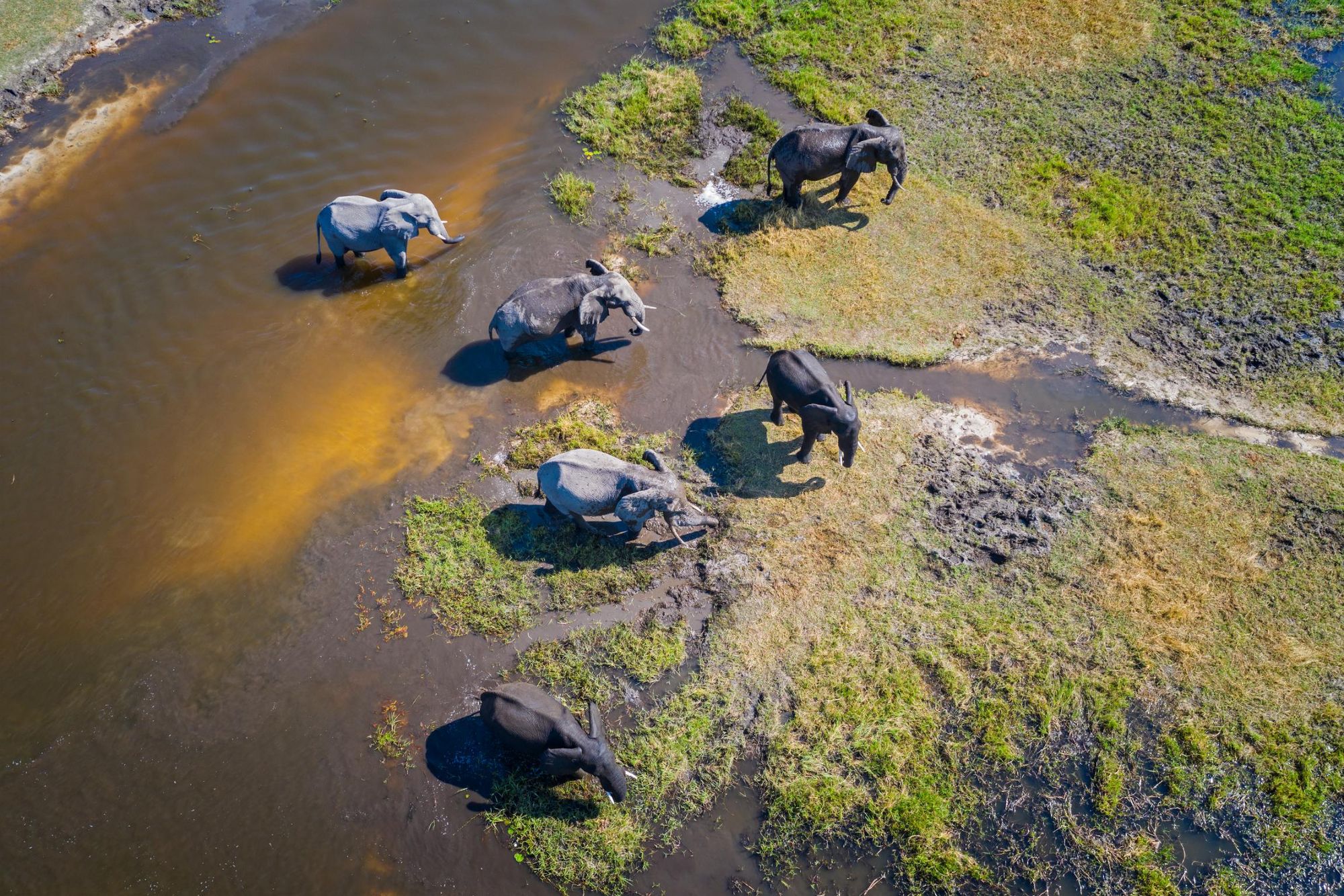
- Season: Start of wet season
- Temperature: 34°C high, 20ºC low
- Time zone: GMT+2
- Currency: Botswana Pula
- Best for: A November safari
The Okavango Delta is an enormous alluvial fan; a thriving wetland which is home to over 400 species of bird and around 200 species of mammals – from African elephants, hippopotamus, rhinoceros and wild dogs to lions, crocodiles and leopards. The concentration of animals across the delta makes this one of the best places to watch wildlife in the world.
If you’ve got your heart set on safari, don’t rule out doing so in November. This is considered a shoulder season here, with the high season being the dry, summer months (as animals congregate round the watering holes, and you can see the zebra migration). In November, the first rains come and green grass returns to the delta. It’s the calving season, and so you can expect to see extremely small antelope dotted around, the weather will be a lot cooler with the arrival of rain, but many animals will still be in the habit of drinking at the main watering holes.
How to get there? Windhoek International Airport is the gateway to adventures combining Namibia and Botswana, while the nearest international airport to Okavango Delta is Maun.
Desert to Delta Journey in Namibia and Botswana | Much Better Adventures
Join a small group adventure for the ultimate Africa combo – via towering sand dunes, the Kalahari Desert and wildlife-packed national parks.

12. Dahar, Tunisia
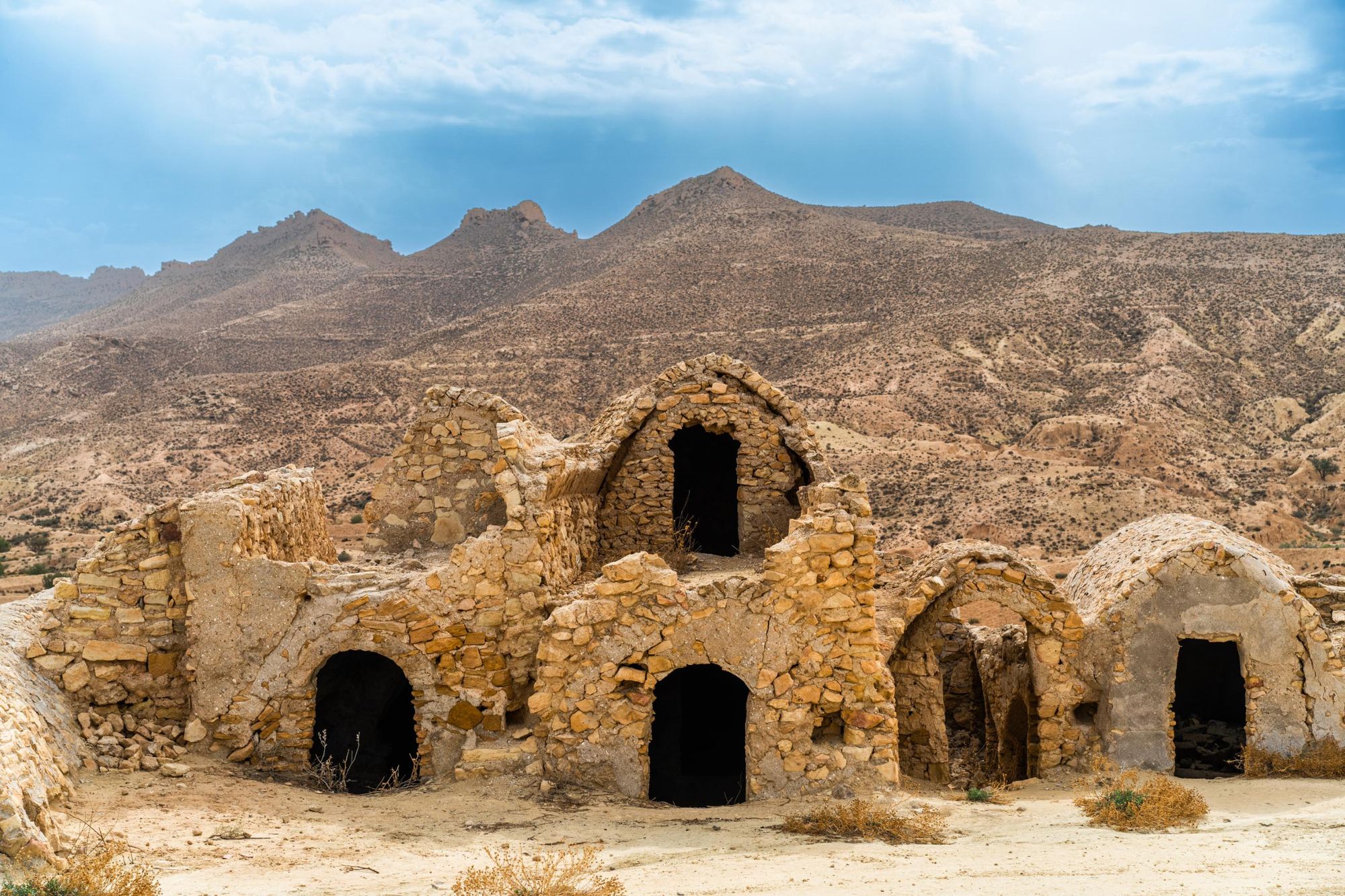
- Season: Autumn/winter
- Temperature: 20°C high, 12ºC low
- Time zone: GMT+1
- Currency: Tunisia Dinar
- Best for: Combining hiking trails with cultural immersion
There are a lot of even seasoned travellers who don’t know too much about Tunisia. So let us tell you a little bit about it. In the rocky south, which can feel a bit like a mountainous moonscape, there are orange-hued canyons, remote Berber settlements, vast Saharan dunes and nestled amongst it all, lush green oases.
Dahar is home to one of the oldest mountain ranges in Africa – inhabited by the indigenous Amazigh people (who most refer to as the Berbers). The Great Dahar Crossing is a long-distance, 12-day trail in the area, and walking it is a total, complete immersion in both landscape and culture. Tunisia is a hot country. Go in November and you’ll find the trails quiet and the intense heat will have gone.
How to get there? The main airport in Tunisia is Tunis-Carthage International Airport. Many adventures, however, will start at the Enfidha-Hammamet International Airport.
Hike Desert, Canyons and Berber Villages in Tunisia | Much Better Adventures
Join this small group adventure to hike amongst orange-hued canyons, lush green oases, Berber villages and vast Saharan dunes.
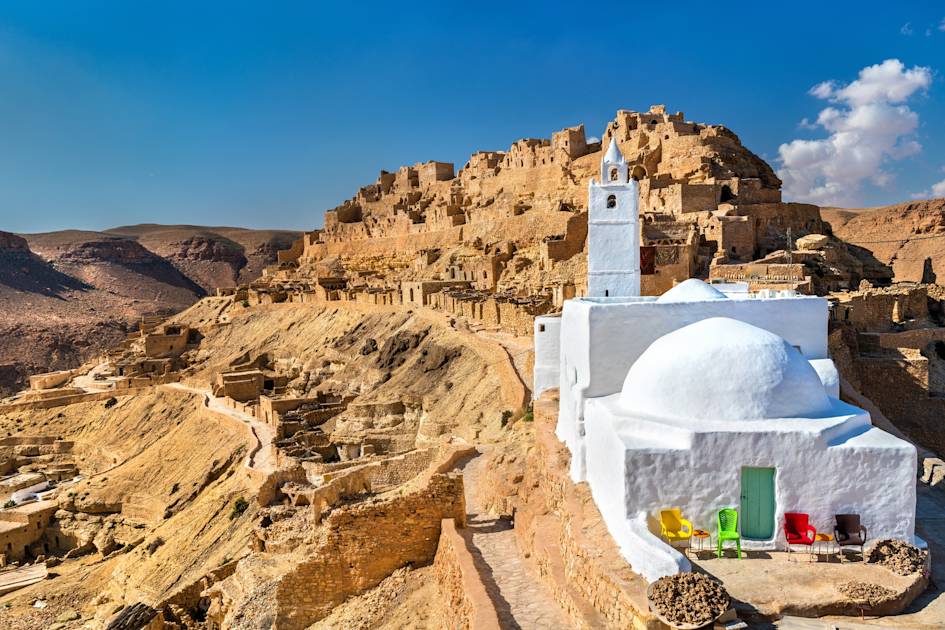
13. The Kumano Kodo, Japan
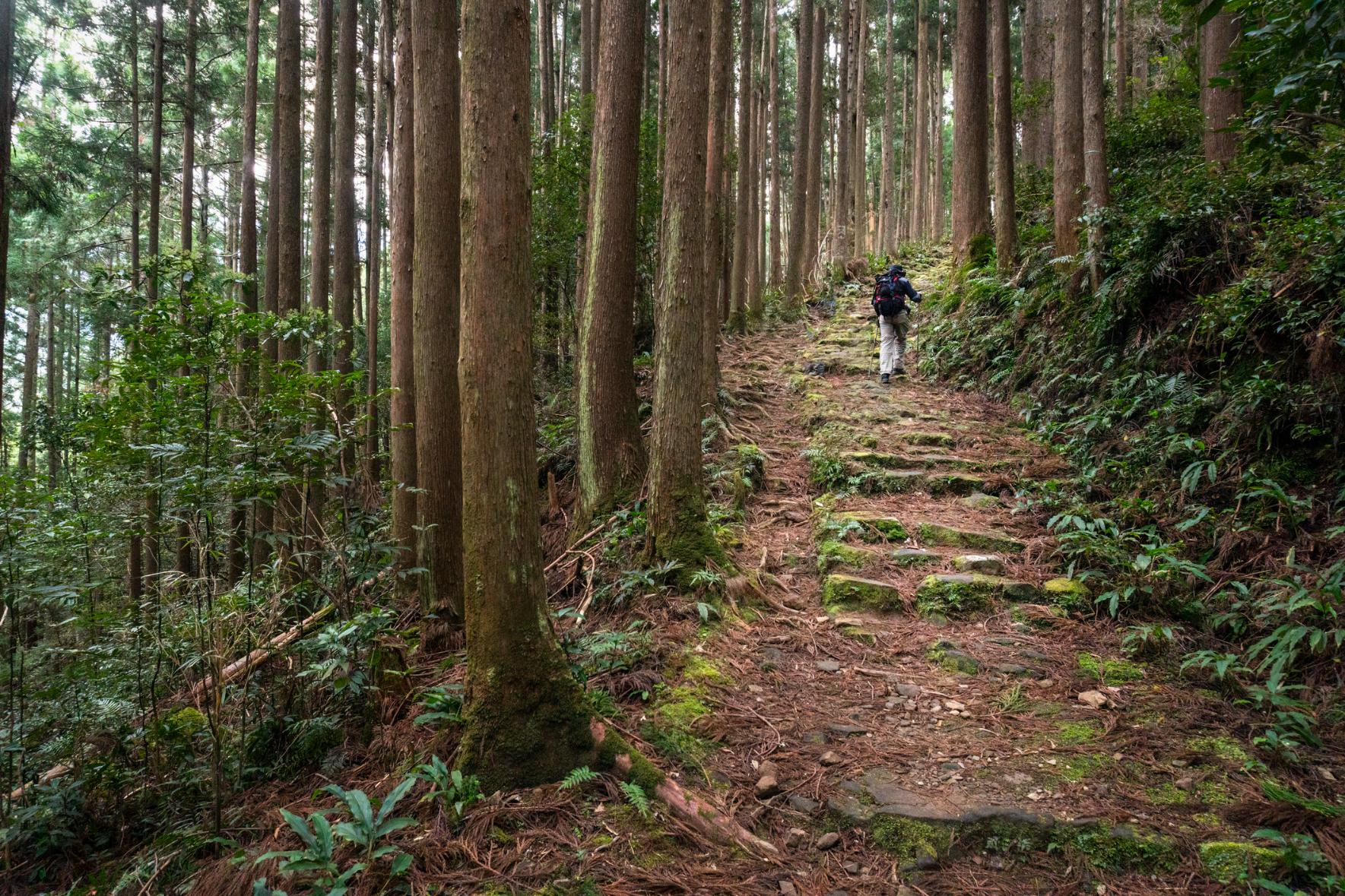
- Season: Autumn/winter
- Temperature: 18°C high, 9ºC low
- Time zone: GMT+4
- Currency: Japanese Yen
- Best for: Experiencing Japanese fall
The Kumano Kodo is a historic, 190-mile (370km) network of pilgrimage trails south of Osaka, The network consists of five interconnected routes which run through the Kumano region of Japan, on the mountainous Kii Peninsula. Alongside the legendary Camino de Santiago in Spain, they’re actually the only pilgrimage routes in the world with UNESCO World Heritage designation. Walk them, and you can connect with the beauty and spirituality of Japan.
This route is heavily based in forests which start to take on autumnal yellows in October. For a full autumn colour palette, walk the route in November.
How to get there? Japan has an excellent rail service, which extends to the Kii Peninsula. The nearest international airport is the Kansai International, which is just outside of Osaka.
The Ultimate Adventure Through Japan | Much Better Adventures
Join a small group of travellers to hike to Japan’s iconic sites & wild spots via neon cities, ancient temples, sacred mountains and pilgrimage trails.
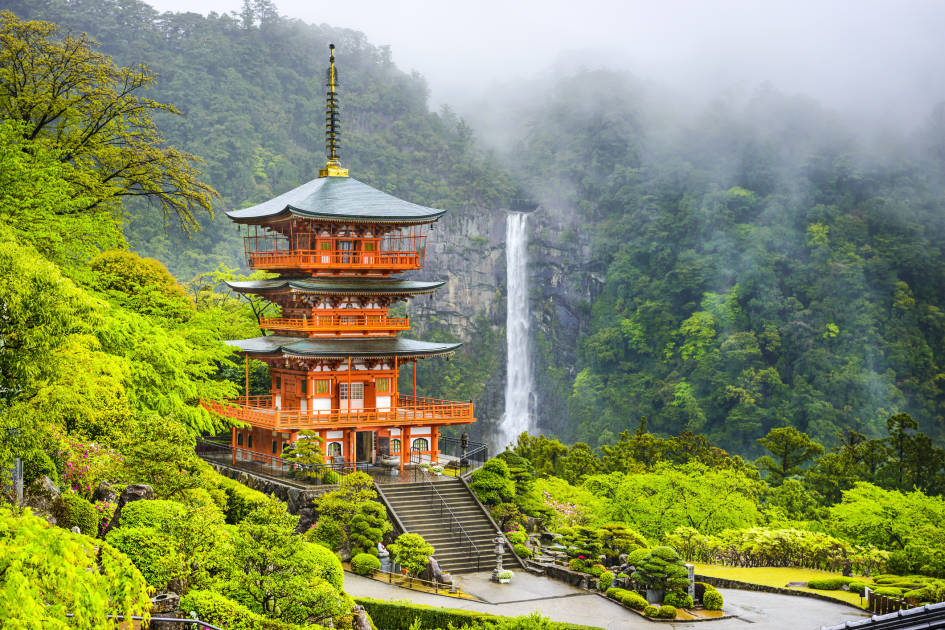
14. The Pekoe Trail, Sri Lanka
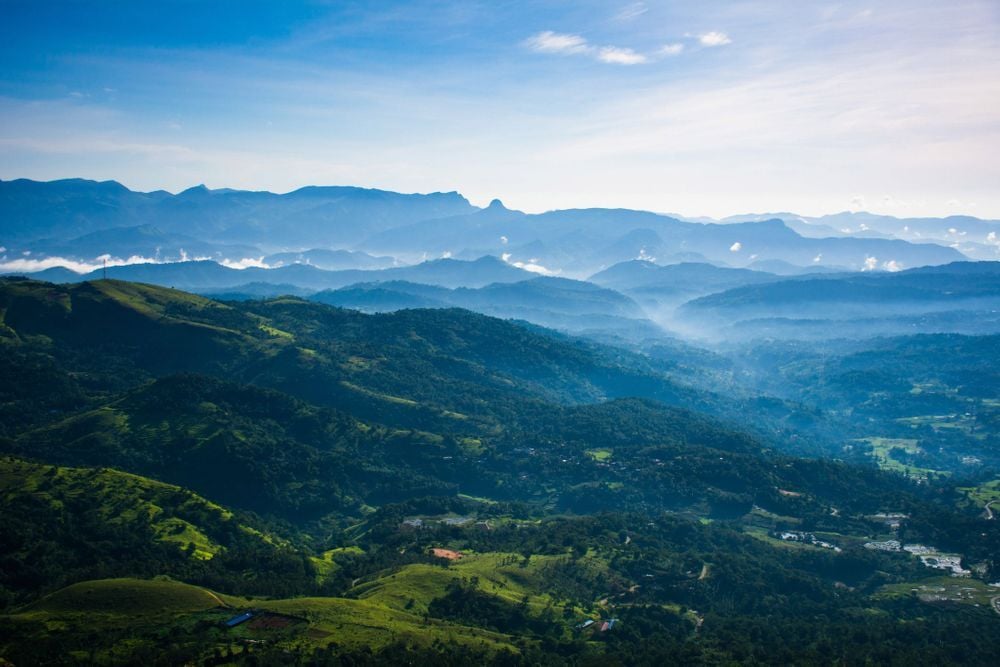
- Season: North-east monsoon season
- Temperature: 30°C high, 22ºC low
- Time zone: GMT+5:30
- Currency: Sri Lankan Rupee
- Best for: A long-distance hiking trip
Sri Lanka is an island which pulls at the heartstrings. Most people know about the likes of Sigiriya, the ancient rock fortress in the northern Matale District, and many will have seen photos of the famously beautiful train route from Kandy to Ella. Take on the long-distance Pekoe Trail and you can experience both of these – and so much more. This relatively new walking route is an 186-mile (300km) epic through the Central Highlands of Sri Lanka. You’ll combine tea plantations with mountain terrain, rarely straying far from immersive, lush greenery.
November is shoulder season in Sri Lanka. That means you might get the odd thunderstorm (which is pretty cool to watch, although you do have to be prepared for it), but you’ll also find lower prices, shorter lines at the famous spots, and the locals tend to be a bit more relaxed too.
How to get there? Bandaranaike International Airport in Colombo (which is the capital city) is the main airport in Sri Lanka.
The Ultimate Adventure Through Sri Lanka | Much Better Adventures
Join an active, small group trip to hike, cycle, surf and do yoga through Sri Lanka’s jungles, rural villages, wildlife reserves, and tropical beaches.
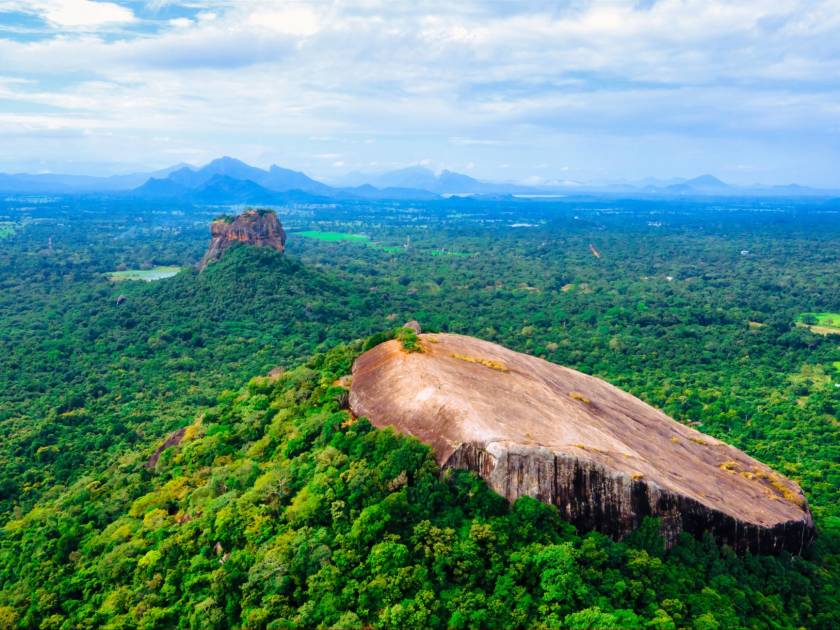
15. The Maldives

- Season: End of wet season
- Temperature: 30°C high, 27ºC low
- Time zone: GMT+5
- Currency: Maldivian Rufiyaa
- Best for: Forgetting about winter altogether
When most people think of the Maldives they think of flop and fry tourism; and the all-inclusive resort. There’s a whole lot of that on the Maldives, sure, but go down that route and you’ll miss the community-centred tourism which is now thriving here – and which lets you both benefit locals and really discover the island culture.
The Maldives is made up of 1,192 islands in total, 187 of which are inhabited. Here, you can swim with whale sharks, snorkel above colourful reefs, explore the quiet and dreamy islands of the Maldives by kayak and SUP. Travel in November and you can do all of the above – enjoying high-20ºCs weather all month. If you’re looking for summer in winter, then this is the place to go.
How to get there? Fly to Male Velana International Airport to start your adventure in the Maldives.
Island Hopping Adventure in the Real Maldives | Much Better Adventures
Relax into authentic island life on this easygoing adventure in South Ari Atoll, paddling in tropical waters away from the resorts with a local guide.

16. Tian Shan Mountains, Kyrgyzstan
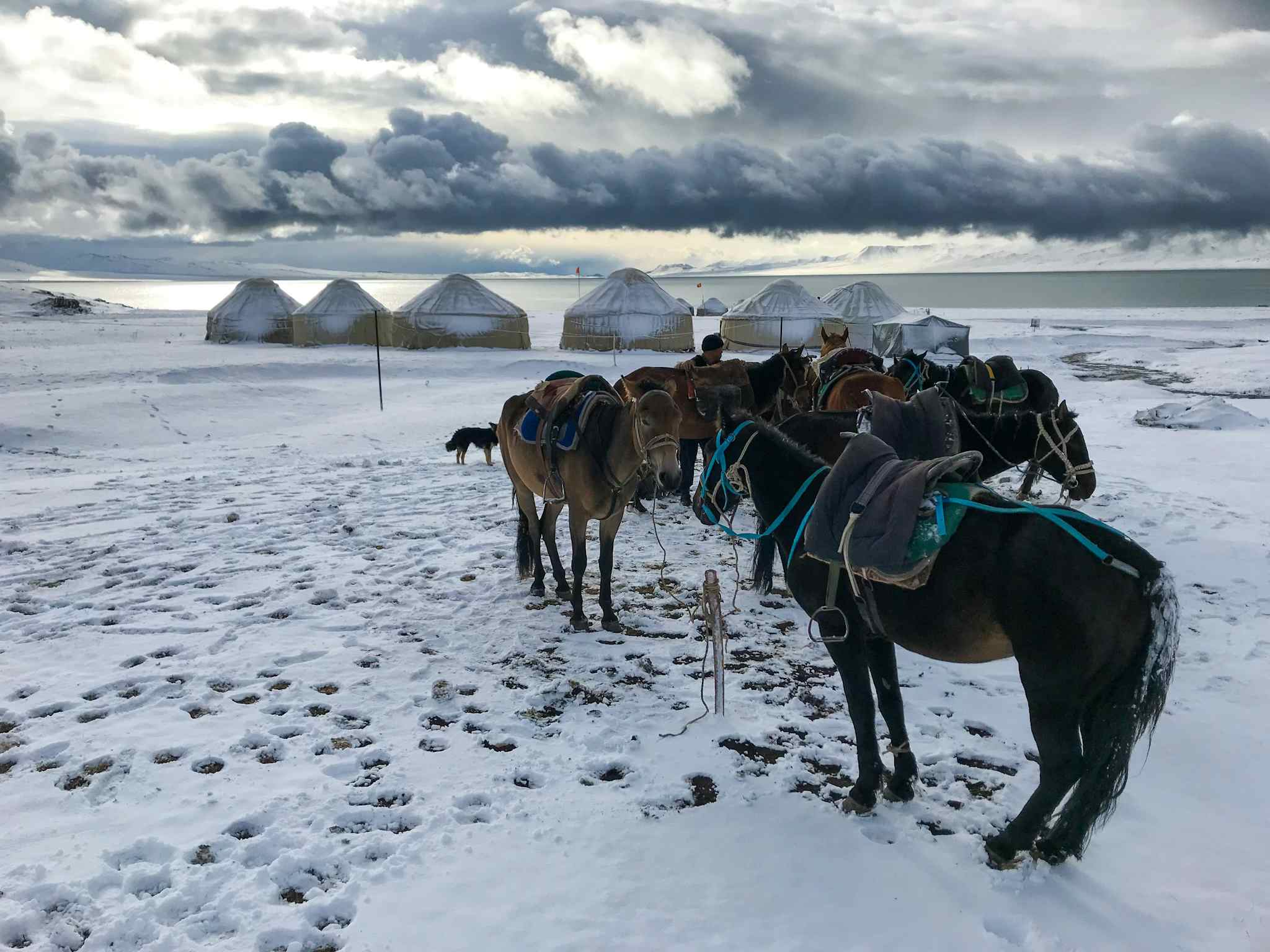
- Season: Autumn/winter
- Temperature: 22°C high, -2ºC low
- Time zone: GMT+6
- Currency: Kyrgystani Som
- Best for: Those with wanderlust
Kyrgyzstan makes people fall in love with the world all over again. This is a vast country – home to ancient cultures, nomads and to the Tian Shan mountains, which are perhaps the most spectacular mountain range in Central Asia.
Snowshoe through the snowy landscape of November and you will see this wilderness in all its glory. Valleys are dotted with mountain lakes and forests rise up the slopes. Go horse riding in the backcountry and meet the legendary eagle hunters of the region – combining stunning landscapes with utterly unique culture.
November is a time when the skies are clear, the water has a shallow, glacial blue and wild spaces are touched with snow. Travel is Kyrgyzstan takes planning – but it’s a place where you can reconnect with nature; and indeed with the world.
How to get there? The most popular way to reach Kyrgyzstan is to fly into Manas International Airport in Bishkek.
Kyrgyzstan in Winter: Snowshoeing, Horseriding & Sauna Trip | Much Better Adventures
Join a small group tour on this winter adventure of hiking, horse riding and snowshoeing through Kyrgyzstan, warming up in banya saunas as you go.
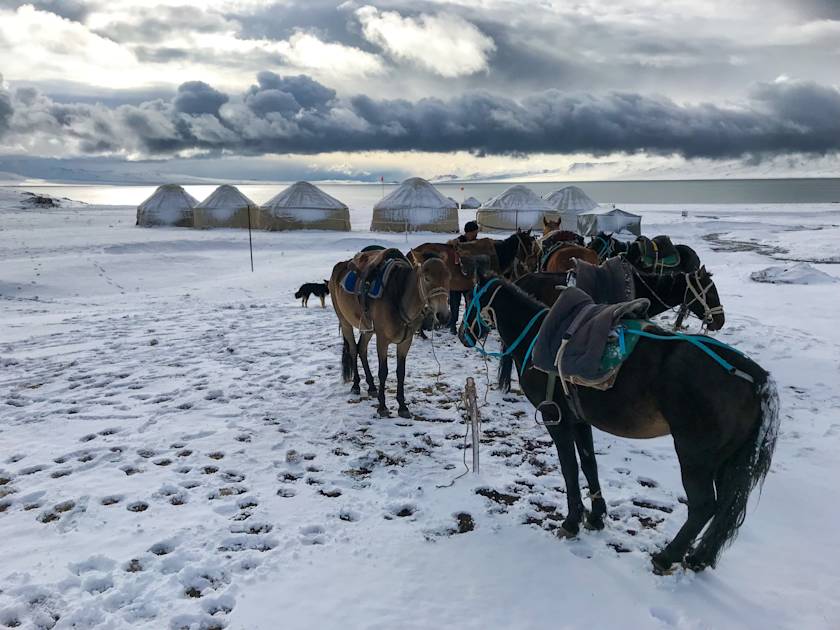
17. The Jordan Trail, Jordan

- Season: Autumn/winter
- Temperature: 22°C high, 8ºC low (for Petra)
- Time zone: GMT+3
- Currency: Jordanian Dinar
- Best for: Combining a world wonder with a proper hike
Everyone knows about Petra. This legendary, ancient city, built into the rocks in Jordan, is one of the world’s most fascinating cultural and architectural sites.
The history, which dates back to the 3rd century BC, defies belief. This was one one of the world’s great trading posts. Today, Petra attracts a lot of tourism, but many travellers bus into the destination, have a look around, and then leave again – meaning that not only do they not see the beauty of the surrounding area, they also don’t have much positive impact on the local economy.
The Jordan Trail is a long-distance route through Jordan which runs the length of the country, passing through both Peter and Wadi Rum, the otherworldly landscape where The Martian was filmed, but also taking in so, so much more. It was set up to improve the benefits of tourism for the communities of Jordan.
So, why November? Hiking in Jordan can be tough due to the heat in the height of summer. This isn’t so much of an issue in November – although it should be noted that as the winds come in, nights do get cold.
How to get there? The capital of Jordan, Amman, and its airport are the gateway to Jordan.
Cycle the Jordan Trail to Petra | Much Better Adventures
Pedal with local experts through desert landscapes on sections of the Jordan Bike Trail. You’ll pause at Petra, be wowed by Wadi Rum and float in the Dead Sea.
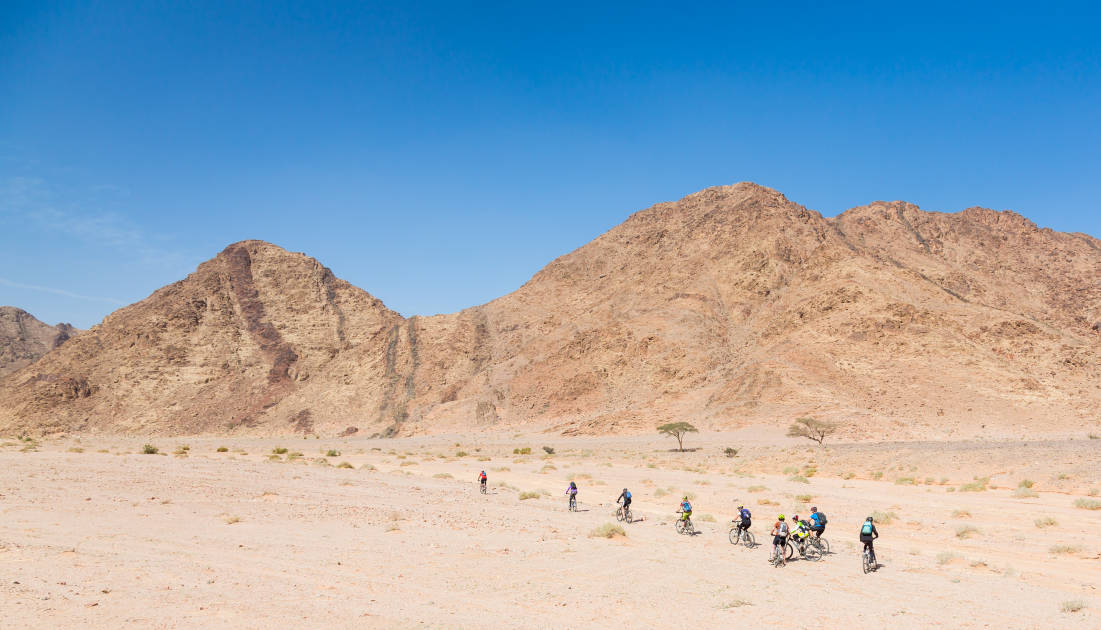
18. The Himalayas, Nepal
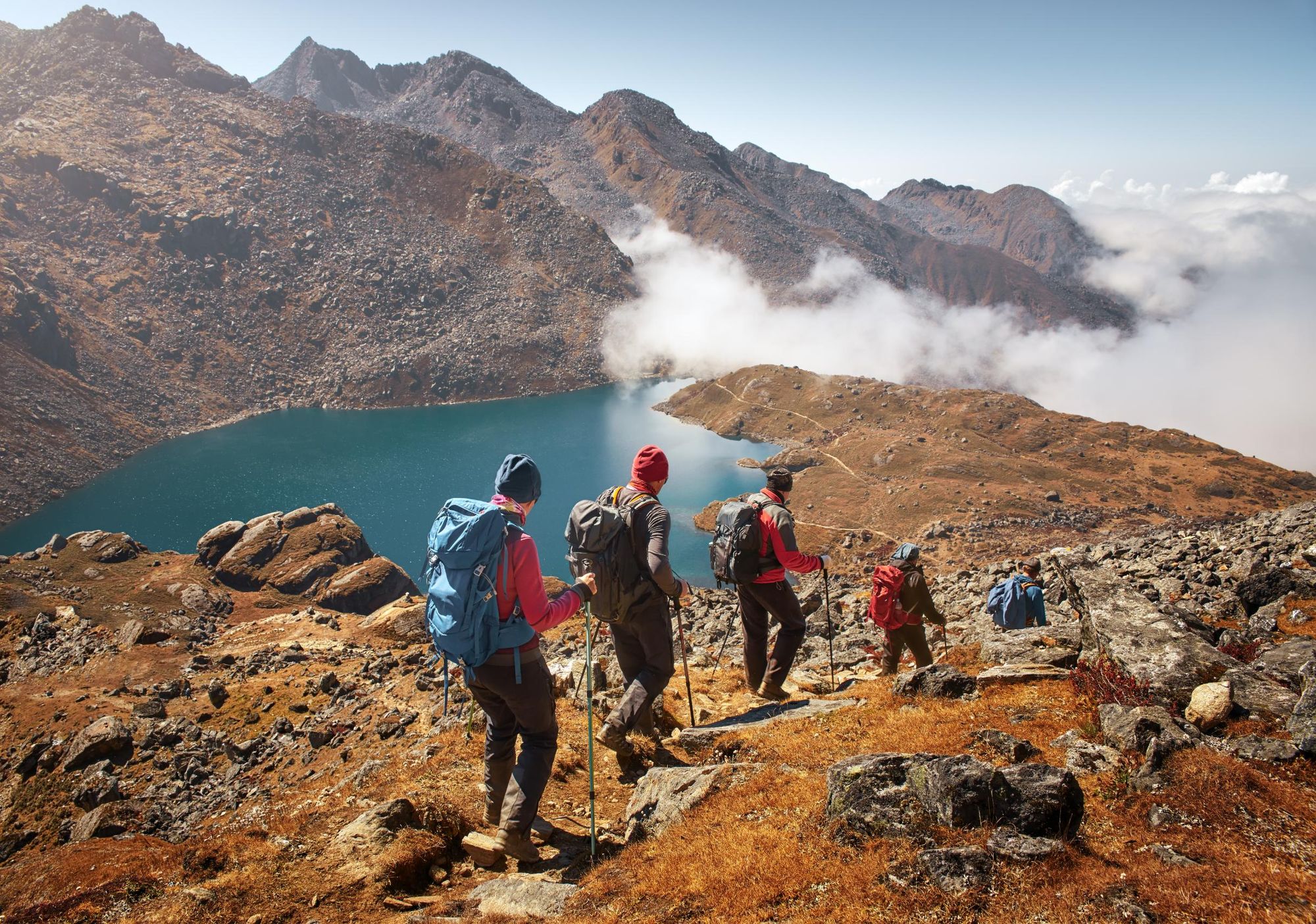
- Season: Autumn/winter
- Temperature: 9°C high, -2°C low (for Lukla)
- Time zone: GMT +5:45
- Currency: Nepalese Rupee
- Best for: Experiencing the world’s biggest mountains
The Himalayas of Nepal are home to the highest mountains of the world; notably Mount Everest, which at 8,848m (29,028ft) is the tallest peak in the world. The long-distance trek to reach Everest Base Camp is famous in its own right, of course, but it’s not the only excellent trek in the region. There’s also the Annapurna Circuit, or the Annapurna Sanctuary trek, which runs to the base camp of the eponymous Annapurna, the 10th highest mountain in the world.
The Himalayas are a hiker’s dream; a place where nature is at its largest, and so you will always feel small, in awe, and in a state of sheer tranquility. This is a sublime, awesome place. Visit in November and you’ll be hiking with clear skies, before the winter season kicks in, and without the extreme heat of summer.
How to get there? You’ll first need to get to Kathmandu. If it’s the Everest Base Camp trek that you’re doing, you’ll then want to fly on to the famous Tenzing-Hillary airport in Lukla.
Climb Mera Peak (6461m) | Much Better Adventures
Join expert climbing guides in the Himalayas to conquer the highest trekking peak in Nepal and bask in epic views of the world’s highest mountains.
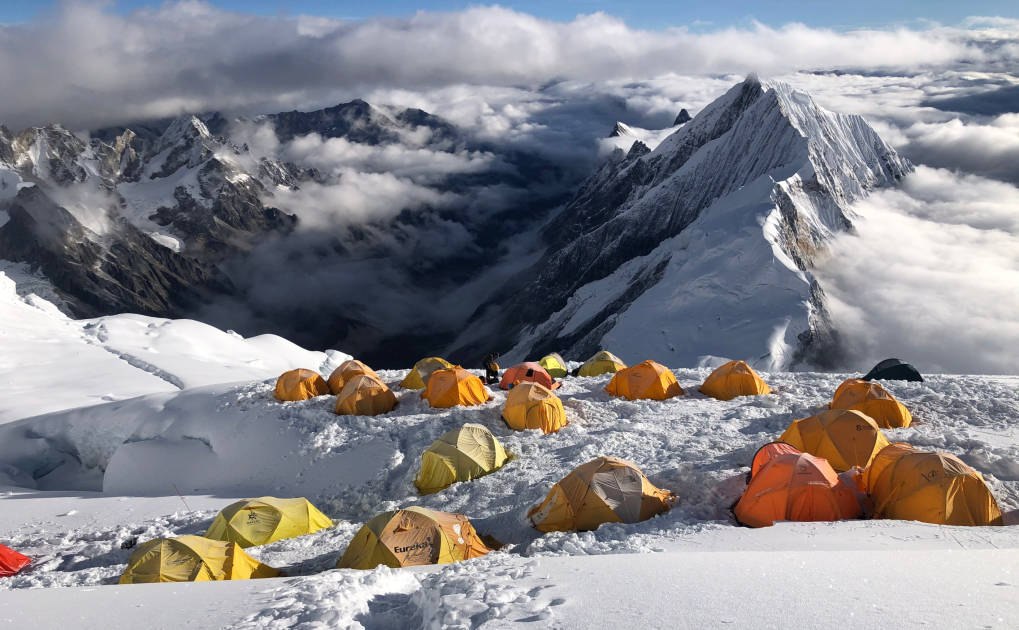
19. Cao Bằng, Vietnam
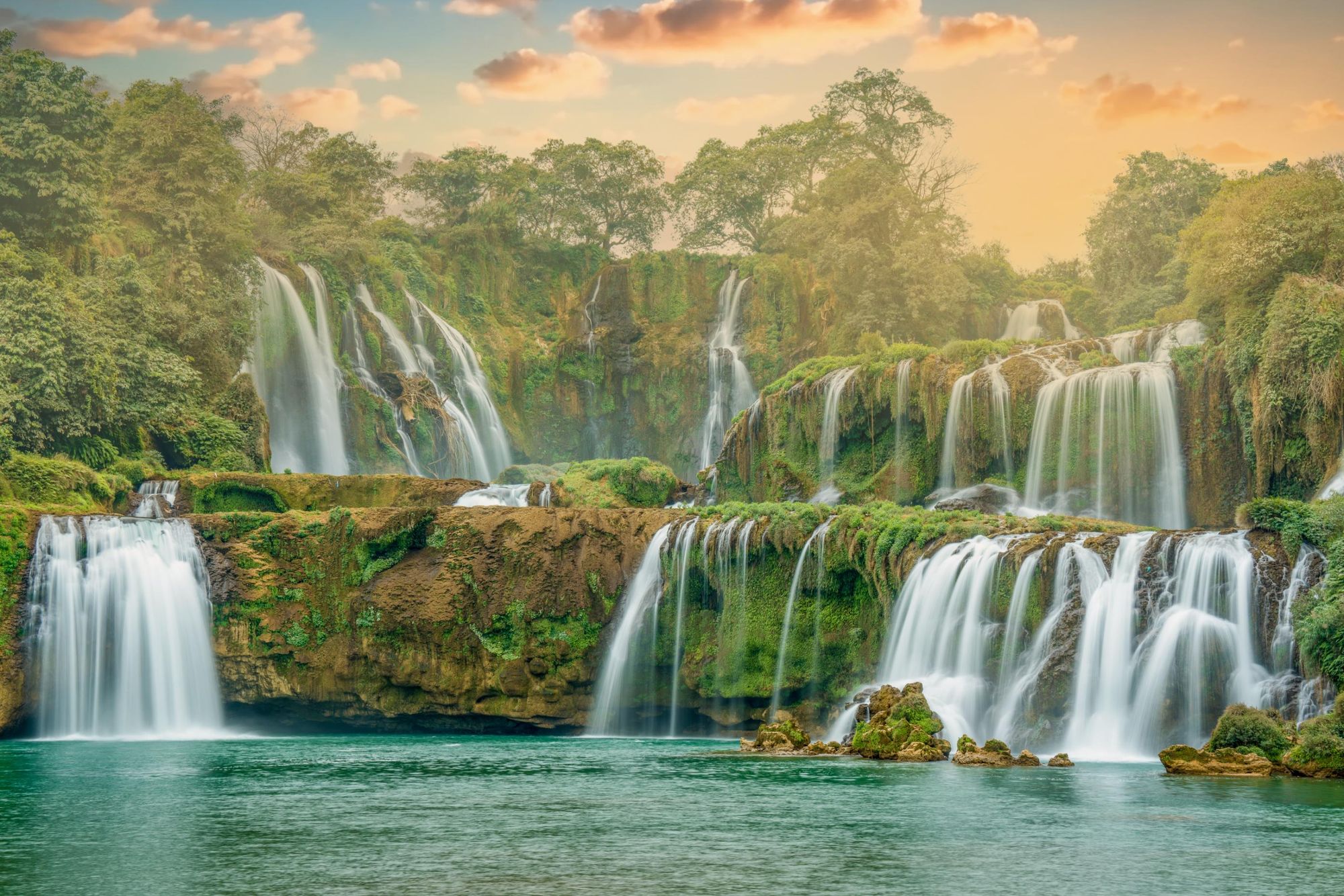
- Season: Winter
- Temperature: 24°C high, 16ºC low
- Time zone: GMT+7
- Currency: Vietnam Dong
- Best for: Idyllic waterfalls
Vietnam is a backpacking haven, but focus on the north of Vietnam and you’ll also find that there’s a quiet adventure paradise waiting to be discovered.
Cao Bằng is a city on the bank of the Bằng Giang river. It’s the perfect base from which to explore. The remarkable Bản Giốc waterfalls look like the sort of place a Disney character would stumble upon while looking for Atlantis. There are layers of waterfalls and turquoise blue lagoons surrounded by tall trees and lush greenery. Elsewhere, explore the Ngườm Ngao Cave system, and visit Thang Hen Lake – where 36 smaller lakes connect through caves and passages.
November brings the perfect temperature for outdoor activities here; and the sunsets are sublime.
How to get there? Fly to Hanoi and then you can grab a five hour bus to Cao Bằng.
Trek the Remote Trails of Northern Vietnam | Much Better Adventures
Join a small group of adventurers to explore a wild corner of Southeast Asia, on this remote trek in Vietnam’s far north. Led by local, expert guides.

20. The South Island, New Zealand
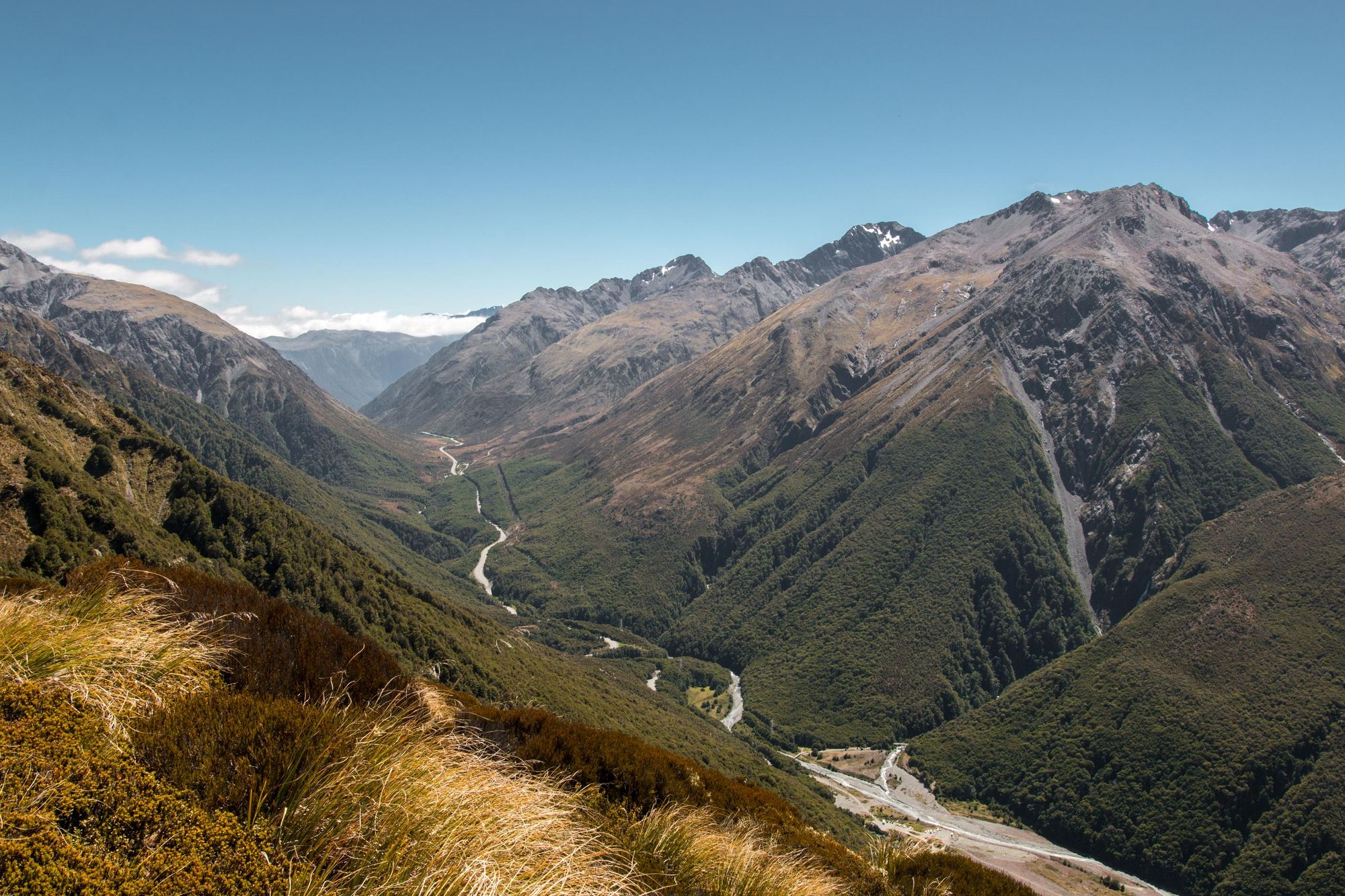
- Season: Spring/Summer
- Temperature: 20°C high, 10ºC low
- Time zone: GMT+12
- Currency: New Zealand Dollar
- Best for: An adventurous heart
Ask around and you’ll soon find out that while the north island might be beautiful, the south island of New Zealand is where the real adventures are at.
On the west coast, you can traverse the Southern Alps and ride the West Coast Wilderness Trail. A crossing of Goat Pass will take you deep into the interior, on a boulder-hopping, river-crossing adventure, and if you hike up to Bealey Hut you’ll earn a sublime view of the Waimakariri River and the peaks of Arthur’s Pass National Park. Incidentally, the Waimakariri River – which is a remarkable, bright shade of blue – is also an ideal spot for rafting between high canyon walls.
Arriving in November here means you’re arriving just as summer is about to kick off. You won’t be alone; but you will have great conditions – for both outdoor adventure and meeting new people.
How to get there? Fly to Auckland (the capital, which is on the north island of New Zealand), then fly or get the bus to Kerikeri or Kaitaia. From their, take a tourist bus to Cape Reinga.
Coast to Coast Expedition Across New Zealand | Much Better Adventures
Join a small group of active adventurers for the challenge of a lifetime, hiking, biking and rafting across New Zealand’s South Island.

Inspired? Browse our full range of adventure holidays now!

